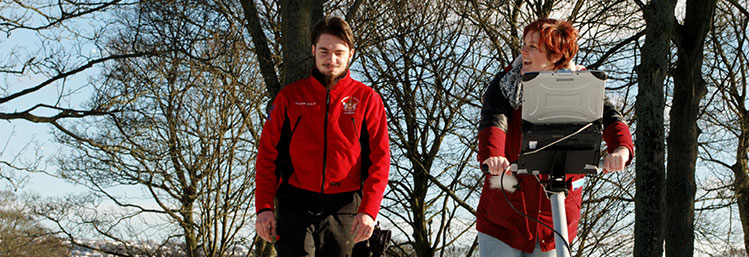
Archaeological Sciences
MSc
- Duration
- Start date
- Location
Suitable for applications.
This course has encouraged me to work independently and expand my own ideas and data. I've really developed in all areas of mainstream archaeology and in my abilities as a researcher.
Learning and assessment
The teaching and learning strategy takes into consideration the learning outcomes, the nature of the subject, and the need for you to take responsibility for your own learning as part of this advanced taught programme.
The thematic modules are delivered in a combination of formal lectures, student-led intensive seminars/tutorials and extensive practical instruction. Coursework (laboratory and field reports, worksheets, essays) is geared towards demonstrating relevant knowledge, understanding and professional skills in principal approaches to the application and use of scientific methods in archaeology. Elements of group work are part of core specialist modules; communication skills are tested in both written and oral form in several modules.
The degree progresses through a spiral curriculum, with each teaching / assessment block developing and building on prior learning. The underlying knowledge and understanding is then drawn upon in the Dissertation (c.15000 words) which encompasses a substantial piece of original research, ultimately assessed for its publishable merit.
The assessment strategy is designed to support the learning outcomes of each specific module. It uses a wide range of assessment methods, including coursework (worksheets, critiques, laboratory reports, research design, essays), exams (practical tests), and oral presentations. Assessment elements are regularly structured in a way that allows you to benefit from formative learning towards summative assessment.
University of Bradford honoured with Queen’s Anniversary Prize for outstanding archaeology
We have been awarded a 2021 Queen's Anniversary Prize for Higher and Further Education for our world-leading work in developing archaeological technology and techniques and its influence on practice, policy and society.
The prestigious accolade, which honours world-class excellence and achievement, is the highest form of national recognition that UK higher education institutions can achieve. The University has been honoured for its leadership and innovation in pioneering the techniques, technology and practices of archaeology both in the UK and worldwide.

Study support
A comprehensive support network is here for you to ensure you reach your academic potential and go on to further success in the future.
You’ll benefit from a range of support services, including:
- personal academic tutor
- student support / administration team
- Academic Skills Advice service
- Career and Employability Services
- award-winning Disability Service
- well stocked libraries and excellent IT facilities
Research
Archaeology engages the entire human past in all its temporal and spatial dimensions. It is fundamental to our understanding of how we evolved and our communities developed, and how we study, preserve and interpret our past.
At Bradford, our distinctive approach emphasises the integration of the natural and physical sciences in this enquiry. In accordance with the University’s mission, making knowledge work, the School of Archaeological and Forensic Sciences aims to provide excellence in a comprehensive range of archaeological topics, with emphasis on both teaching and research, believing the two activities to be mutually dependent.
